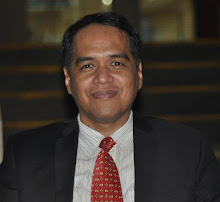This post is labeled under Career Move
“Congratulations! Your resume is impressive and we are considering you to our vacant post. Now, can you tell us something about yourself…”
More than ever, job interview is the last stage where an applicant needs to go through before you get hired. It is either make or break scene. Even the brightest graduate who excels academically fumbles and become lost in answering interviewer’s questions.
On some cases, headhunters conduct first an initial telephone interview to measure how well you will handle their questions before they consider you for the next stage of the hiring process.
Just as you prepare on a well-formatted resume, invest time in preparing (and practicing) answering interviews. Anticipation is the key. Like in any war, if you are equipped and know where the enemy will strike, chances of victory increases. Yes, you are correct. It’s a mind game!
Here are common questions you need to prepare on:
1. Can you tell us something about yourself? This is the moment to make first impression. How do you speak? What are your ideas? How do you express yourself? Every employer wants to employ person who exudes personality and adds excitement to their team. You should smile often and be confident expressing of who you are and what you can do in the organization.
Do not tell trivial things about yourself. This is not a personal thing to them. Simply tell your name. Nickname often people call you. What course did you take up in college? If you gained experience working on other companies, state your achievements. A fresh graduate can describe projects he/she had involved with and the participation contributed to make it a success.
Hot tip: Tell only qualities of an applicant should possess to qualify to the vacant position. If you are applying for a programmer position, you should tell how good you are in crunching numbers, solving logic problems and number of projects/case studies you have done in the past. All the details you will tell them should lead to the qualifications of the position. Be concise.
2. Can you tell us something not written on your resume? You should answer this question stating your attitudes towards work. You may say you are patient, consistent and a team player. Again, anything you say here must fall to the qualities of the position they are looking for. You need to cite instances where these qualities were shown. It should again work related or something you achieved. No personal anecdotes, please.
3. Why should we hire you? Tell your interviewer that you should be hired because you qualify for the position. State your experiences and achievements that may contribute to their organization.
4. What are your weaknesses? This is a trick question. Of course there is no such person who has no weakness. So you cannot answer that you don’t have one.
This is a type of question where you need to put a negative trait and convert it into a positive one. Cite only one weakness. No one wants to dwell too much on the negatives, do you?
An answer may look like this:
“I consider myself an impatient person. We were working on a software project where I acted as the requirement analyst. All my responsibilities were done and just awaiting the completion of developer and quality groups’ tasks. The completion of their jobs served as the feedback on how I captured the real requirements of our customer. Because we needed to beat our deadline, I asked them what’s holding them to finish the project on time. I offer them my help since I still have the edge in coding a program. We finished the project on time.”
5. Where do you see yourself five years from now? The recruiter tries to determine character traits of the applicant. Therefore, your answer should focus related to the question:
One more thing: maintain eye contact to your interviewer. I know you will feel nervous at first. Smile often. Breathe deeply. This will relieve the tensions. Don’t let your eyes wander around. As you go along with the interview process, you will feel the confidence because you are prepared.
Practice, practice, practice! Every time I’m about to be interviewed, I write my answers on the questions above and review it again and again. I do not attempt to memorize it. Keeping an outline on my mind on how I should answer such questions is enough to boost the confidence I needed during the interview.
Any thoughts you may want to add? Please let know.
Good luck!
Related Articles
An Important Tip in Preparing Resume for Experienced Professional
Earning STAR on a Job Interview
Resume for Newly Graduates
Monday, April 27, 2009
5 Tips in Answering Questions on a Job Interview
Subscribe to:
Post Comments (Atom)





No comments:
Post a Comment